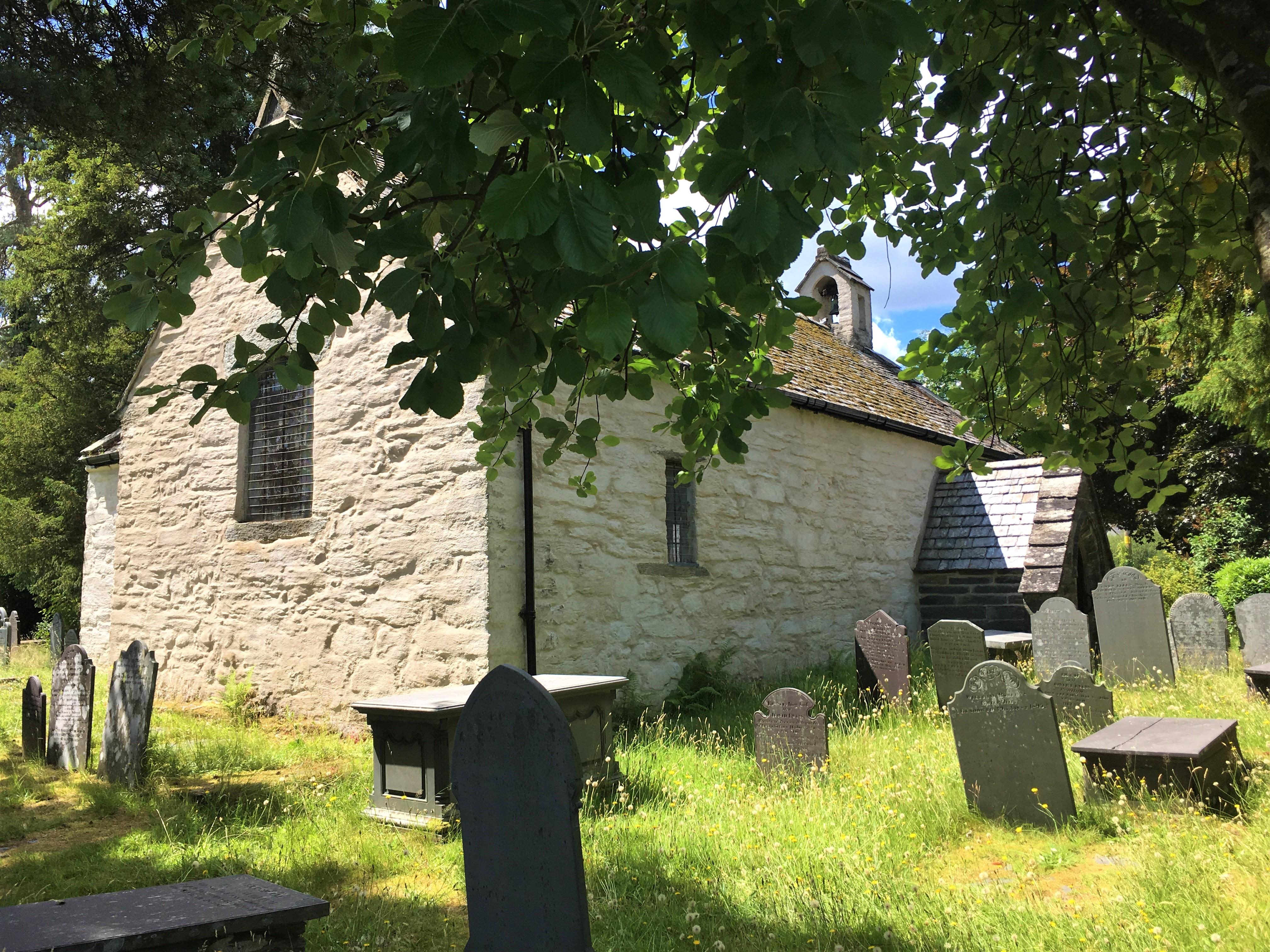St Tudclud
Penmachno, Clwyd
This church closed in 1997 but a community effort resulted in the church reopening in 2009.

A small church at Gwyddelan’s preaching spot was replaced in the early 12th century by a new stone church.
Dolwyddelan, Clwyd
This in turn was dismantled c.1500 by Meredith Wynne, who built the present church. A former occupant of Dolwyddelan Castle, he moved the church to make it less vulnerable to ambush by brigands who claimed sanctuary at St John’s Hospice, Ysbyty Ifan.
Most of the present building dates from c.1500. Its original roof was made of 'cerrig mwsog', stones embedded in moss. More moss would be stuffed between the stones as part of the general maintenance. The porch dates from about 1850, but the Victorians were less intrusive in their rebuilding here than at many other churches.
A handbell hanging in the church has been dated to c800ad and is one of few few surviving Northern Irish bells of the time. Although it was not brought here by Gwyddelan, it attests to the close relationship between the Northern Irish and Welsh Churches in the Dark Ages.
The rood screen was probably removed from a 15th century church. Other Tudor objects include the south chapel, an arch and two windows which retain their 16th century glass. An ancient beam with a carving of the Dolwyddelan Dragon (pictured right) is visible in the chancel. According to legend, this sea serpent travelled up the river from the sea, causing floods, before being banished to a remote lake. The serpent also belongs to folklore about salamanders, a type of friendly monster with a head on its tail.
The lychgate was built in 2006. The previous one, dating from 1736, was badly damaged when a council refuse lorry reversed into it in 2006. The bellcote was rebuilt after being damaged by an earth tremor in 1984.
Penmachno, Clwyd
This church closed in 1997 but a community effort resulted in the church reopening in 2009.
Betws y Coed, Gwynedd
In the bustling mountain gateway to Snowdonia, St Mary's continues the tradition of a 'prayer house in the wood' (betws y coed).
Betws y Coed, Gwynedd
This redundant 14th century church is now cared for by the St Michael's Betws y Coed Trust and welcomes visitors from all over the world.